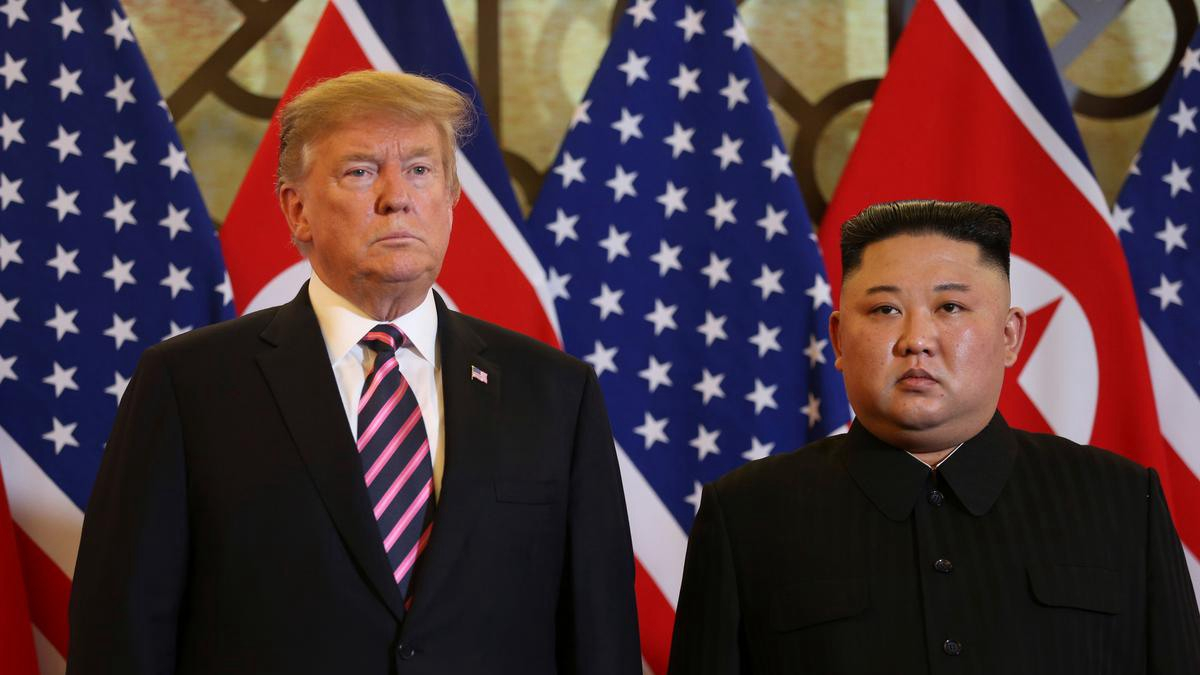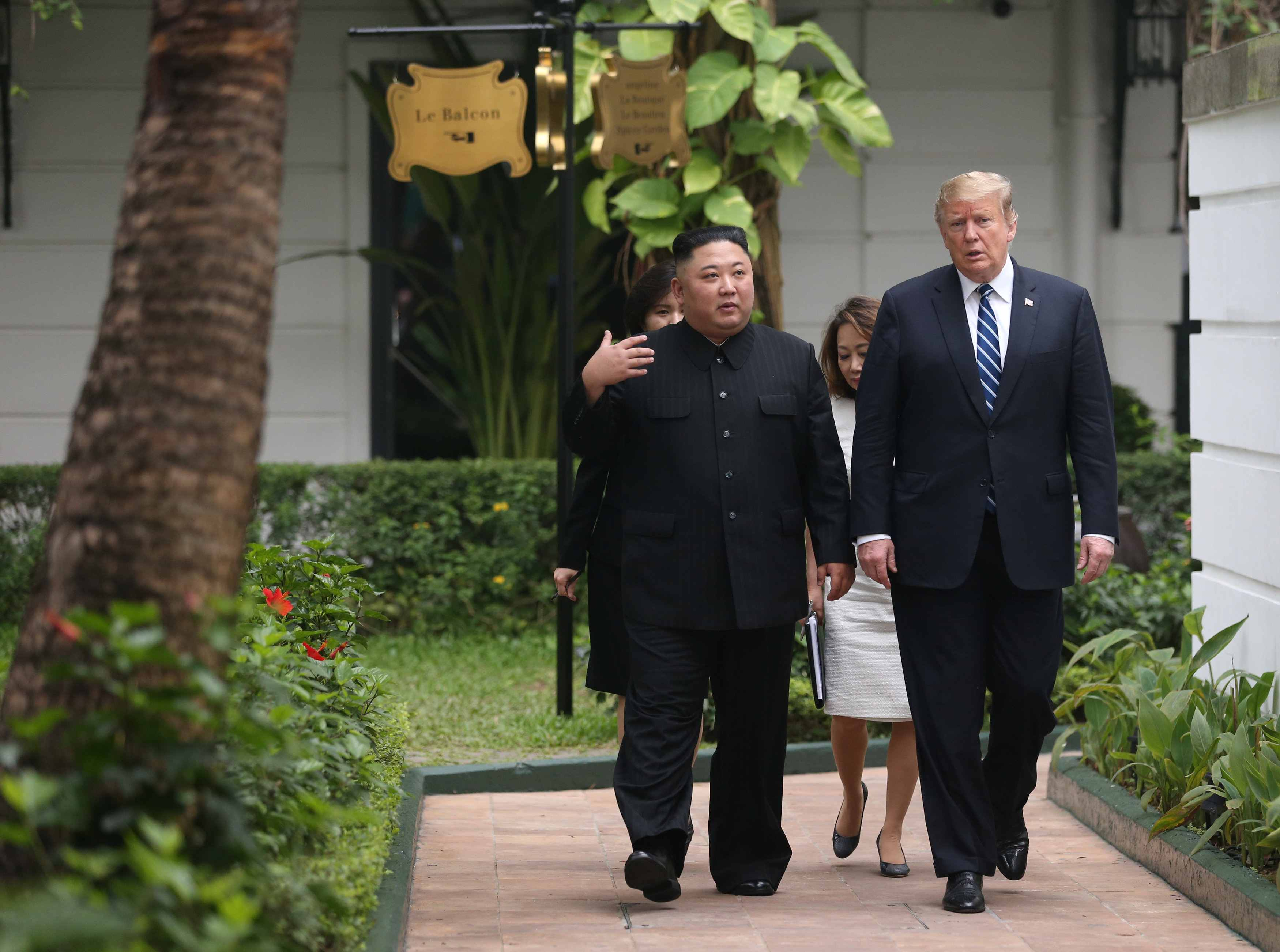
Opinion
15:59, 13-Apr-2019
Clock is ticking for Washington as DPRK ready for long 'battle'
Jeongmin Kim

Editor's note: Jeongmin Kim is a DPRK analyst based in Seoul. She previously worked at the Reuters Seoul bureau and CSIS (Center for Strategic International Studies) Korea Chair. The article reflects the author's opinion, and not necessarily the views of CGTN.
DPRK leader Kim Jong Un said on Friday that he will only wait "until the end of this year" for the U.S. to decide to "approach with a new calculation," according to state media KCNA on Saturday. Kim said he is not up for a third summit with Trump unless the U.S. "rectifies its attitude." In this speech at the first session of the 14th Supreme People's Assembly (SPA) on Friday, Kim also openly condemned the Republic of Korea for "pretending to be a mediator" when it "has to be a stakeholder."
This comes less than a day after President of Republic of Korea (ROK) Moon Jae-in returned home empty-handed after meeting with U.S. President Donald Trump on April 11.
At the summit, Trump reaffirmed the U.S. stance on sanctions "remaining in place," saying it "isn't the right time" to reopen Kaesong Complex, making inter-Korean projects practically impossible. Trump did not buy Moon's "good enough deal" idea either, reiterating his focus on a "big deal." All in all, the summit did not change the post-Hanoi dynamics.

DPRK leader Kim Jong Un (L) and U.S. President Donald Trump take a stroll in the garden of the Sofitel Legend Metropole hotel during their second summit in Hanoi, Vietnam, February 28, 2019. /Reuters Photo
DPRK leader Kim Jong Un (L) and U.S. President Donald Trump take a stroll in the garden of the Sofitel Legend Metropole hotel during their second summit in Hanoi, Vietnam, February 28, 2019. /Reuters Photo
As an immediate response, Kim's speech signaled to both Trump and Moon that he is preparing for a prolonged battle against Trump's "big deal," saying that he decided that DPRK should not "obsess over summitry with the United States out of thirst for sanctions relief" and that the prospect will be "dangerous" if the U.S. sticks with the current approach at the crossroad "back to the time of war risk."
With the ball in Washington's court, Moon faces a complicated task. The deadlock after Hanoi is fundamentally different from that before Singapore. This time, the stalemate is not about Kim and Trump becoming friends anymore, but about the details of the denuclearization process.
Therefore, what was realistically expected from Moon was not mediation but elucidation and risk management. However, it seems Moon gave up on the former and only partially achieved the latter – and that Kim was apparently not happy about it.
First, Moon chose not to be an interpreter of Kim's concept of denuclearization for Trump. At the root of the "no-deal" Hanoi summit lies the fundamental difference in Kim and Trump's end-goals and process. If Moon was to resolve this, he had to sit down with Trump and elucidate what the DPRK means by "denuclearization of the Korean peninsula," discussing if there are ways it can be compatible with the U.S. concept.
However, Moon said that the ROK shares "a completely identical idea about the final state of DPRK's denuclearization and its goal." This shows Moon chose not to take a risk, avoiding being seen as siding with the North on a central disagreement.

U.S. President Donald Trump (2nd L) shakes hands with ROK President Moon Jae-in (2nd R) as he and first lady Melania Trump (!st L) pose with Moon and his wife Kim Jung-sook on the West Wing colonnade at the White House in Washington, DC, U.S., April 11, 2019. /Reuters
U.S. President Donald Trump (2nd L) shakes hands with ROK President Moon Jae-in (2nd R) as he and first lady Melania Trump (!st L) pose with Moon and his wife Kim Jung-sook on the West Wing colonnade at the White House in Washington, DC, U.S., April 11, 2019. /Reuters
In terms of risk management, many hoped that Moon takes this as an opportunity to raise awareness to Trump how he should take the lead in negotiation, not his hawkish aides who often dangerously misread Kim. This part was nicely done, as Moon and Trump agreed that a "top-down" approach will continue to be imperative, subtly emphasizing that Trump's say will remain more decisive than the working-level officials.
More importantly, Trump-Moon summit was a wise move in terms of timing, scheduled on the same day as the SPA session. It was a good chance to send Kim a sign that Moon is trying to persuade Trump with a smaller deal, preventing Kim from proclaiming a shift in policy line.
However, although it did play a role in preventing an immediate risk, it did not stop Kim from giving Trump a deadline of fewer than nine months. The failure, or fundamental inability, to persuade the U.S. about phased denuclearization exposes the world to a long-term risk: the DPRK is institutionally preparing for an extensive resistance.
Kim Jong Un's speech at the SPA exactly proves this point. Kim said that confrontation with the U.S. "is bound to be long-term one" and that self-reliance can fight against sanctions, just like they "ended a long-term nuclear threat through nuclear weapons."
DPRK's major government, party and legislative meetings this week also imply that Kim is not going to change his denuclearization strategy. The working-level officials of the Hanoi summit, such as Choe Son Hui and Ri Yong Ho, were promoted to key posts, and Kim also replaced his older aides to younger elites. Kim's speech indicated that he will avoid desperately asking for sanctions relief at all costs. As Moon came back without access to inter-Korean projects or the possibility of a smaller deal, an inter-Korean summit is also unlikely to bear fruit in the foreseeable future, if it ever happens.
With the increased budget on the self-relying economy, a likely constitutional amendment consolidating Kim's power as head of state and explicit warning about the possible derailment of nuclear talks, the DPRK is preparing for a long fight. It won't be a pretty picture unless Washington comes up with a better deal that can persuade Pyongyang more effectively. The clock is ticking.
(If you want to contribute and have specific expertise, please contact us at opinions@cgtn.com)

SITEMAP
Copyright © 2018 CGTN. Beijing ICP prepared NO.16065310-3
Copyright © 2018 CGTN. Beijing ICP prepared NO.16065310-3